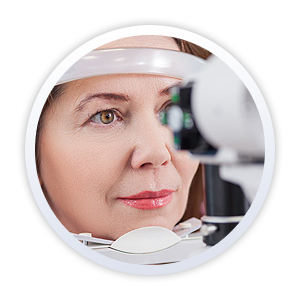 What are cataracts?
What are cataracts?
The lens of the eye is normally clear but as we age, because the lens continues to grow, it thickens and slowly becomes opaque forming a cataract. Your vision will then become cloudy. Cataracts usually develop over many years, but can form rapidly.
Cataracts are a common cause of decreased vision, usually in senior citizens. Surgery is a successful cure for cataracts. Your surgeon can help you determine if cataracts are the cause of your vision loss and decide if surgery is appropriate for you.
What causes cataracts?
Most cataracts are caused by the natural aging of the eye. Cataracts can form from the following as well:
- Family history
- Medical problems, such as diabetes
- Eye injuries
- Medications, such as prednisone
- Long-term, unprotected exposure to sunlight
- Previous eye surgery
The photos below demonstrate how vision might be affected by the formation of a cataract. Note the blurred images and the decreased brilliance in the colors.


*Photos courtesy of National Eye Institute, National Institutes of Health
How fast does a cataract develop?
How fast a cataract will develop varies by individual and may even be different between the two eyes of an individual. However, most age-related cataracts develop over a period of years. Cataracts that are not age-related may progress rapidly. It is not possible to predict how quickly cataracts will develop in any person.
How are cataracts treated?
Surgery is the only way for a cataract to be removed. If the cataract is not bothering you, surgery may not be needed. A change in your glasses prescription may be helpful. Medications, exercises or dietary supplements have not been shown to prevent or cure cataracts.
What can I expect from cataract surgery?
Over 1.8 million people in the United States have cataract surgery each year. Of those surgeries, over 95% are performed with no complications.
Cataract surgery is usually performed under local or topical anesthesia as an outpatient procedure. The cataract or cloudy lens is removed from the eye. In the majority of cases, the lens is replaced with an intraocular lens implant and the focusing power of the eye is restored. The surgery is performed using a microscope, small instruments and other modern technology.
Improved vision is a result of over 95% of cataract surgeries. It is important, however, to understand that complications can occur during or after surgery. If you are concerned or have a problem, please contact your surgeon as soon as possible. Click here for more information on cataract surgery.
Will I need glasses after cataract surgery?
Traditionally, most intraocular lens implants placed during cataract surgery have allowed for good vision only at a distance and do not provide a “full range” of functional vision. In this case, patients are still required glasses for reading, computer work and other intermediate and near vision activities. Advanced technology now offers multifocal and accommodative intraocular lenses that give patients a full range of quality vision at near, intermediate and distance, and greatly increases their independence from glasses or contact lenses after cataract surgery. Your surgeon will assess whether you are a candidate for this new technology and will discuss your options.





